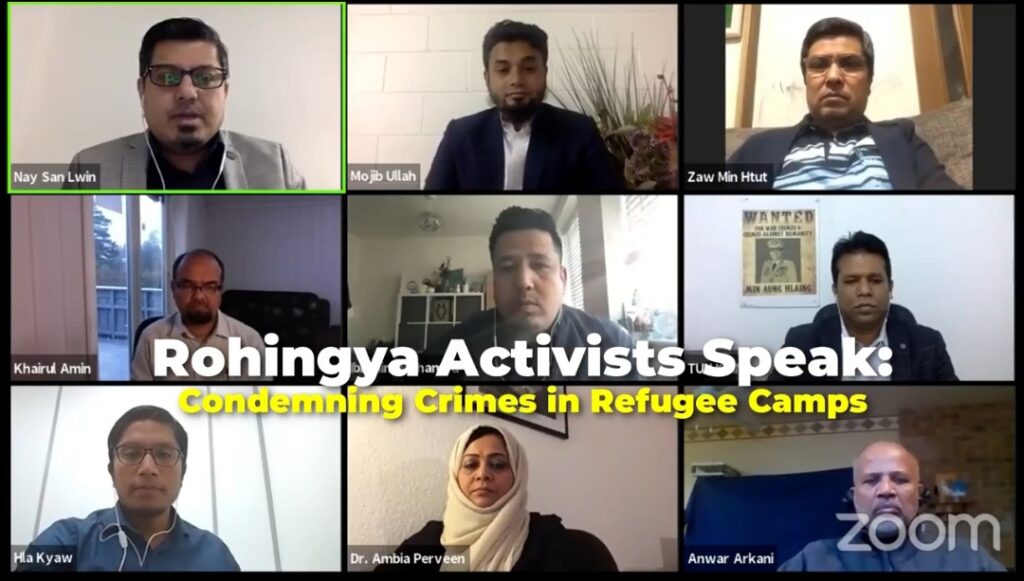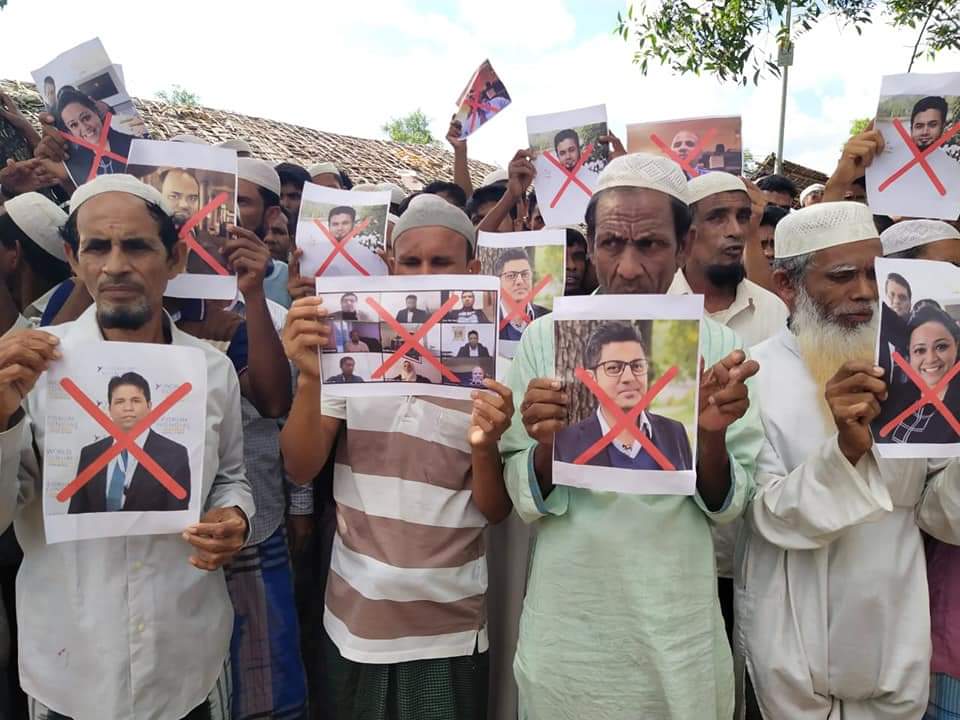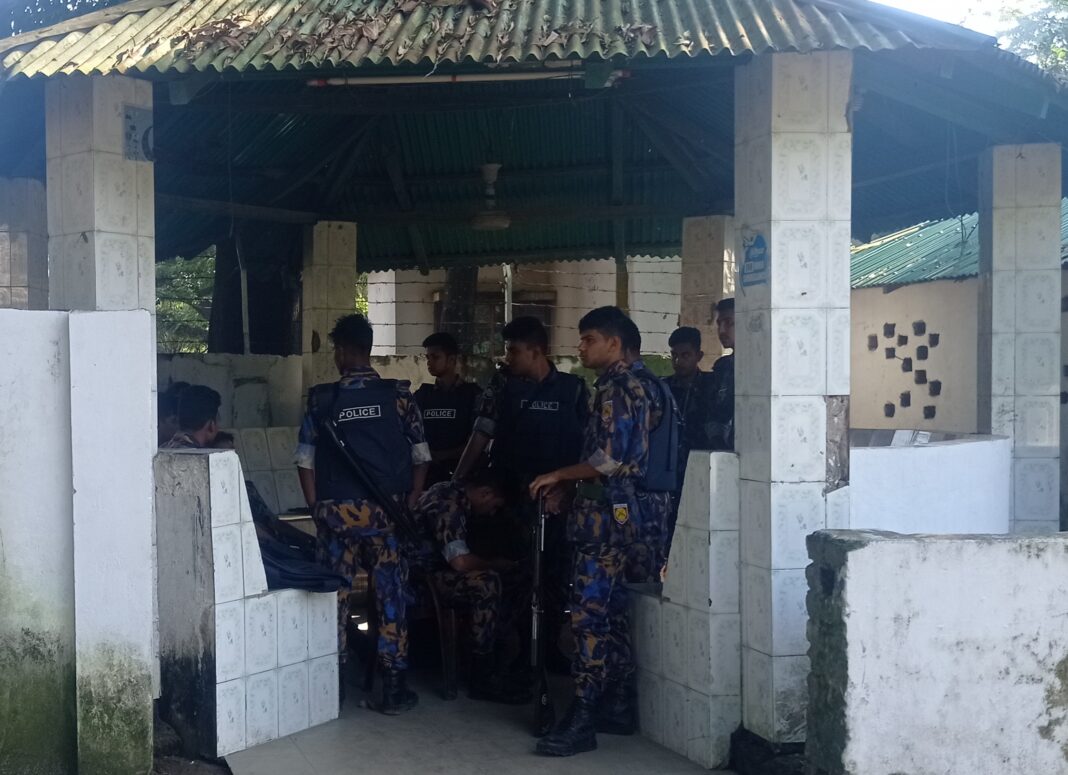BANGLADESH. Coxsbazar Rohingya Refugee Camp: In the last six months, 61 people have been killed as a result of violence among Rohingyas. Incidents of violence seemed to be a daily occurrence. According to the Bangladesh government, eight Rohingyas were killed in clashes between two groups in the first week of this month.
The United Nations High Commissioner for Refugees (UNHCR) announced the strike in a statement, in which the organization expressed their concerns. Rohingyas are involved in about 14 types of crimes including drug trafficking, gold smuggling, human trafficking, and arms dealing.
At night, 14 undeclared bandits ruled the Rohingya camp, and ordinary Rohingyas had to live up to their word. An unauthorized market has developed in the camp and there is nothing that is not available. Market occupation and extortion are the work of Rohingya criminals.
No crime has been organized since 21 Oct. On the same day, 30 Rohingya criminals were arrested. However, in the last seven days, no crime was organized due to the presence of law enforcement in the Rohingya camps.
An expert weighs in
Faridul Alam, Associate Professor of the Department of International Relations at the University of Chittagong, and Rohingya security analyst spoke to Transcontinental Times, “Some local drug dealers worked behind the Rohingya violence. Rohingyas are daring to resort to violence in their shelter. However, the reason for the decrease in the number of incidents is that the upper echelons of the government are closely monitoring the Rohingya camps.”
Looking at the numbers
Rohingyas have also been involved in killings during clashes over water since 14 Aug. It took law enforcement three days to stop the violence. On 30 Aug., the Rohingyas clashed again. The conflict repeated from 3-7 Oct., which was related to Yaba business and extortion. These incidents killed 20 people, including women and children.
In addition to the murders, there have been 35 rapes and 16 abductions in Rohingya camps. In the last three years, there have been 731 cases against Rohingyas for 14 types of crimes. There are an estimated 560 men and 48 women in jail for various crimes.
Rohingya residents speaks out
Kalim Ullah, a Rohingya youth from Kutupalong camp, said, “Before, there was a fear among us. They still have panic but lately, I have seen less. The police are active.”
Osman, a camp leader from Nayapara camp, said the police were conducting a lot of operations so criminals had fewer opportunities. “We want to go back, we will be more comfortable if those who do these things are caught by the police,” Osman said.
Security Agency Statements
Second Commanding Officer of the 14th Armed Police Battalion (APBN), Rakib Khan, said To Transcontinental Times, “We have made every effort to bring this under control.” He then added, “We sat down and talked with 5 groups leading various conflicts. We are trying to reduce the distance between the Rohingyas. At the same time, I am trying to build a police relationship with ordinary Rohingyas so that ordinary Rohingyas also help the police and be friendly. The process of identifying those involved in the conflicts is ongoing. We have set up check posts to identify the points through which these robbers enter and exit the camp. The conflict in the camps is declining as we try to resolve it through dialogue among the Rohingya.”
Hemayetul Islam, the 16th APBN commanding officer in charge of security at another Rohingya camp, explained, “We are active and increasing networking to reduce incidents.”
Rohingya Leaders Against Violence

At an online conference on Saturday, 20 Oct., Rohingya leaders from various countries including Nay San lwin, Mojib Ullah, Zaw Min Htut, Khairul Amin, Tun Khin, Hla Kyaw, Dr. Ambia Parveen, Anwar Arkani, and Mohammad Ibrahim spoke out against the violence and the yaba trade.
The Rohingyas refugees have been urged not to get involved in the clashes. After the conference, a group of Rohingyas called for the boycott of all these leaders in the Rohingya camps in Bangladesh. The Rohingyas in Bangladesh marched in the camps against these nine important Rohingya leaders, as enemies of their nation.
Transcontinental Times spoke with Rohingya leader Nay San Lwin about the issue, he said, “Rohingyas living in different countries are threatening me with death.” He then added, “Some quarters in the Rohingya camps in Bangladesh called for a boycott against us. We will ignore all this and say we are for peace. The perpetrators of the violence in the Rohingya camps are the agents of the Myanmar Army. We are always against wrong doing.”


This is good news for ordinary Rohingyas and locals who want to reduce violence. None of the residents are in favor of this violence. Mostly, people want safe repatriation and the assurance of a safe life back home. Bangladesh has stepped up diplomatic efforts to repatriate Rohingya.
The Gambia has submitted a 500-page memorandum to the International Court of Justice. China has assured Bangladesh that Rohingyas will return. On the other hand, Myanmar’s national election is next month. Despite this, it appears that Myanmar has not stopped working against the Rohingyas.



